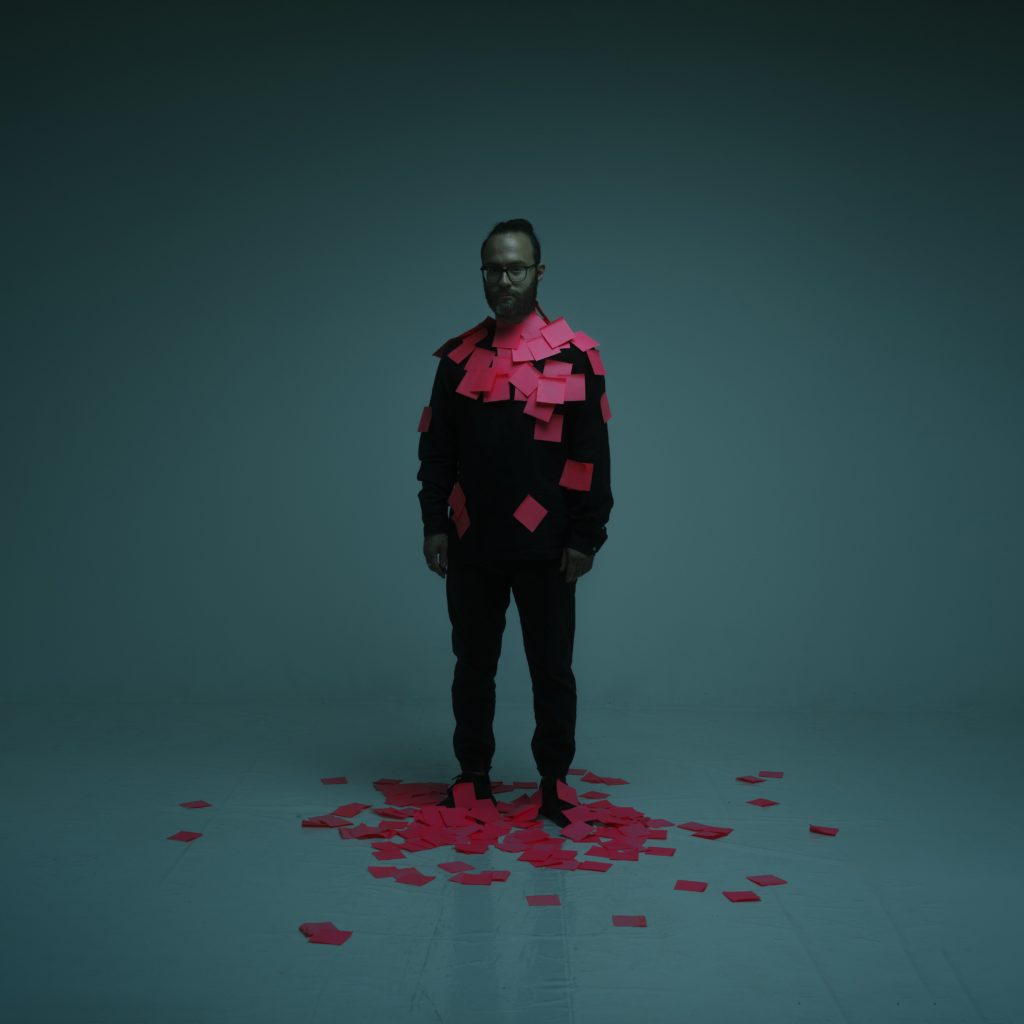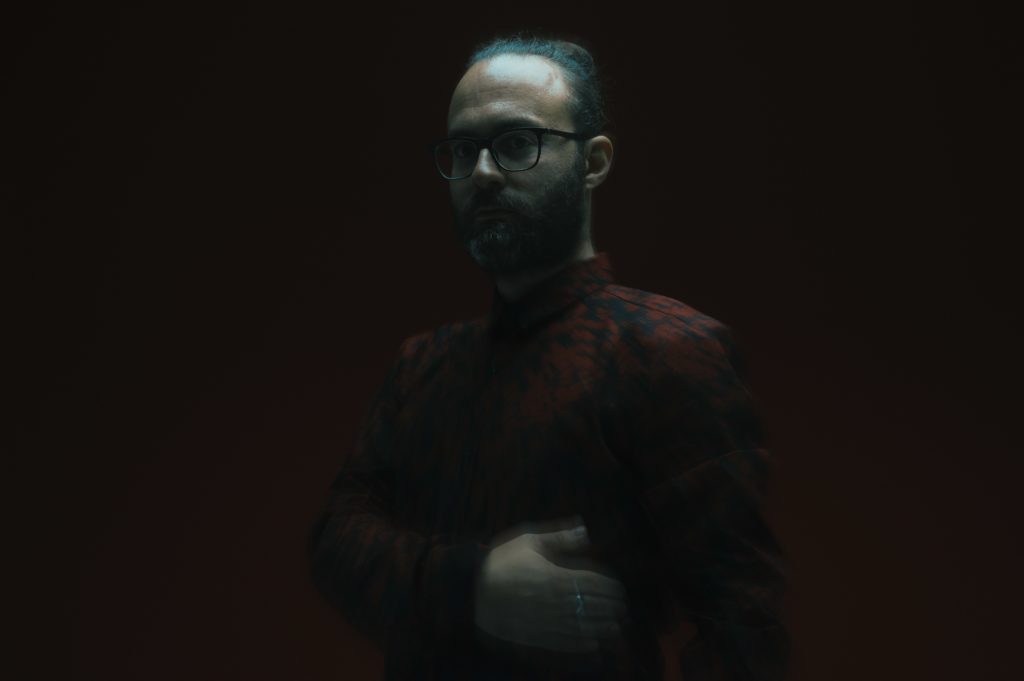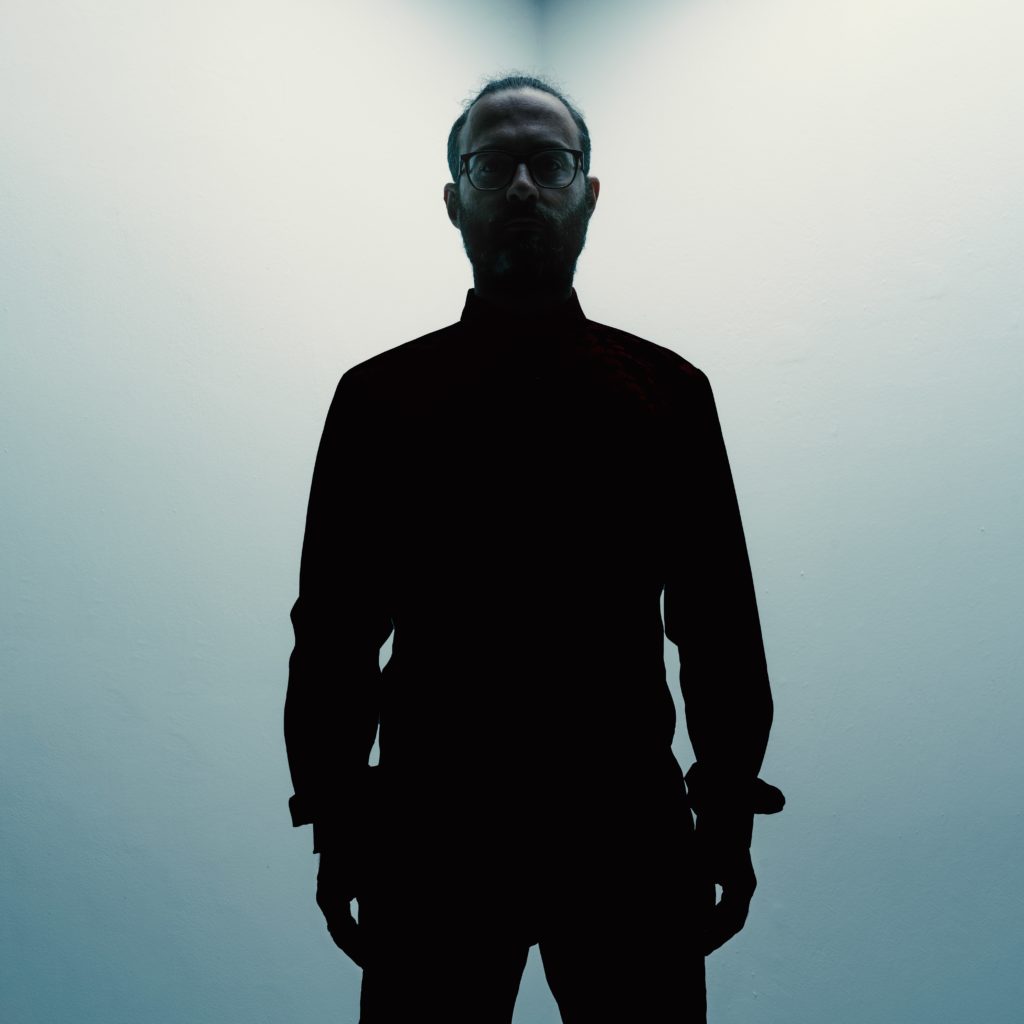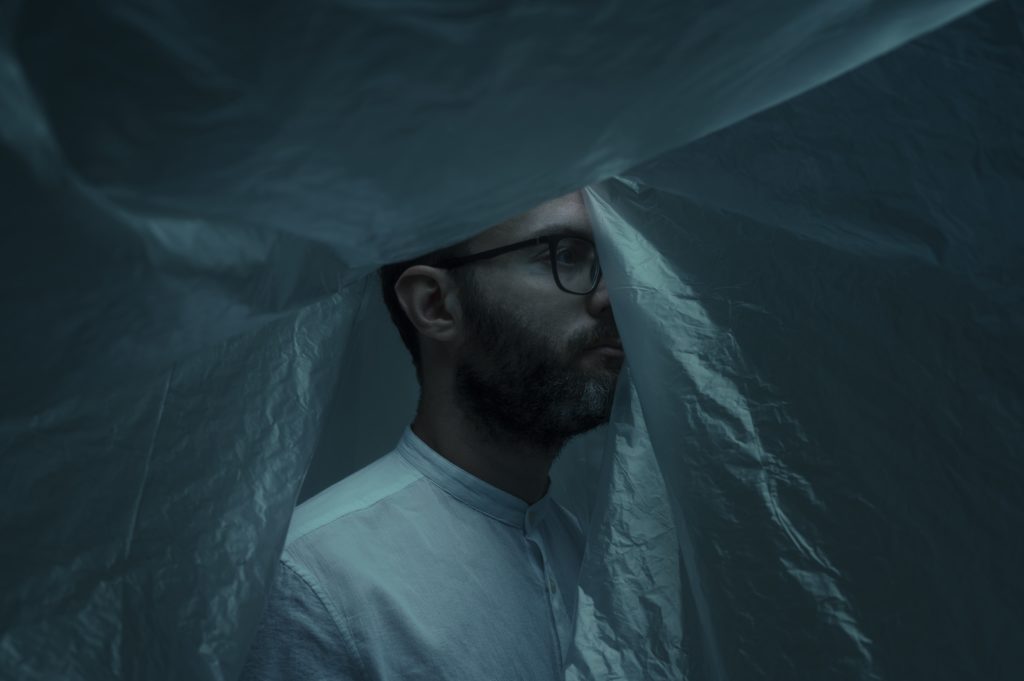In occasione dell’uscita del suo attesissimo nuovo album “Feelin'” su Innervisions, Ivory si racconta in esclusiva a Parkett.
Artista eclettico in continua evoluzione, capace di conquistare il pubblico grazie a composizioni melodiche che diventano marchio. Nato a Milano, Ivory, al secolo Daniel Tagliaferri, attraverso la sua musica eleva le sensazioni.
Alla continua ricerca di una diversità sonora e compositiva, di un miglioramento costante, per realizzare arte che sprigioni le emozioni. L’intervista.

Ciao Ivory, benvenuto su Parkett. Grazie di essere nostro ospite. Partiamo dall’ormai imminente uscita del tuo nuovo album, “Feelin’”. Come nasce questo tuo progetto? Da chi o cosa hai preso ispirazione? Come trova gli stimoli Ivory nella produzione?
Ciao, grazie a voi per avermi invitato. L’idea che sta dietro all’album è veramente molto semplice: ho voluto lavorare ad una mia personale re-interpretazione della house music. Ho pensato che potesse essere molto stimolante e soprattutto nuovo per me, prendere alcuni elementi strumentali classici dell’house, utilizzare samples in maniera creativa pescando spesso anche dalla musica R’n’B e rielaborare il tutto mantenendo comunque la mia identità sonora; poi con Innervisions, tra le numerose demo realizzate abbiamo scelto le 10 tracce che meglio incarnavano questo progetto.
L’album prende nome dall’omonimo singolo. Ti chiedo, essendo stata una delle tracce più attese e apprezzate dell’ultimo periodo, come ha preso vita?
Feelin’ nasce da un’idea che mi è venuta così spontaneamente, non arriva da una jam in studio o da vari tentativi seduto davanti ad Ableton.
L’ho pensata e quando poi sono entrato in studio l’ho scritta esattamente così come l’ho immaginata; è stato magico! Volevo incanalare in quei minuti tutta la potenza emotiva che si vive durante i dj set, nel punto in cui la traccia svolta completamente, grazie all’ingresso del vocale e di altri elementi, volevo racchiudere quella sensazione di sorpresa e di energia che spesso avverti durante un party, quando il dj suona qualcosa di meravigliosamente inaspettato.

L’album segue l’uscita di due EP pubblicati sempre su Innervisions. Che cosa rappresenta per te quest’etichetta? Inoltre vorrei chiederti, c’è una casa discografica che prediligi più di altre? Per il genere che porta avanti, per la libertà che ti viene concessa nel realizzare una traccia, ecc.
Innervisions è sempre stata fonte di grande ispirazione perché per me essenzialmente rappresenta la libertà creativa, non credo che esista un solo ed unico sound che possa descrivere Innervisions; di unico c’è la sensazione che la musica da loro pubblicata vuole dare, e questo è un concetto meno afferrabile ma che permette di abbracciare più stili mantenendo però una propria identità. Credo che in musica non sia un determinato sound a caratterizzarti ma le sensazioni che vuoi trasmettere all’ascoltatore.
Sei uno degli artisti più apprezzati nel panorama della techno cosiddetta “melodica”. Chi sono stati i tuoi idoli e le tue influenze musicali quando hai iniziato a navigare nel mondo dell’elettronica? Invece c’è qualche artista contemporaneo da cui prendi spunto e a cui ti ispiri?
Le mie influenze musicali arrivano dai generi più disparati. Una delle cose più belle dell’arte e della creatività in generale è poter riunire stimoli che arrivano da fonti anche estremamente distanti fra loro, rielaborare il tutto e dargli nuova vita in un unico e nuovo prodotto artistico. Quindi trovo difficile nominare solo alcuni artisti che mi hanno influenzato, invece tra i contemporanei stimo ed apprezzo tantissimo chi spinge i limiti della musica verso nuovi confini, potrei citare ad esempio Arca e Koreless.

Sui tuoi canali social hai pubblicato, in corrispondenza delle uscite citate prima su Innervisions, dei video che ti mostrano in studio, intento nel plasmare e realizzare queste tracce. Li ho trovati estremamente simbolici, come vedere uno scultore in atelier forgiare il bronzo. Un aspetto interessante è la tua ricerca di suoni naturali, definibili “fai da te”. Puoi dirci la tua idea di produzione in studio, e il significato che hanno per te questi suoni “puri”?
Grazie per il parallelo con la scultura, mi piace! Le registrazioni ambientali sono fondamentali per me, danno un carattere più organico alla musica che scrivo e molto spesso aiutano tantissimo il workflow e la creatività. Inserire questi elementi aiuta molto a rompere certi schemi compositivi e spinge a dare qualcosa di diverso e rappresentativo al mio sound design.
Tu sei di Milano, una delle città più rilevanti per il clubbing nel nostro paese. Come vedi la differenza tra il contesto italiano e quello mondiale? Credi che ci sia il potenziale per rendere il nostro paese più attraente per grandi nomi ed eventi?
Non so se sono la persona adatta a fare questo tipo di valutazione, però da producer e dj quale sono di una cosa sono sicuro, l’Italia è sicuramente uno dei paesi che sforna più talenti nel settore electronic/dance/club. La cultura e la passione di certo non mancano, però molto spesso manca il supporto a questa scena, e non sto parlando di certo del pubblico. Quello che abbiamo visto succedere al settore dello spettacolo ed intrattenimento durante la pandemia la dice gran lunga sulla visione generale delle istituzioni e di una fetta di opinione pubblica riguardo questo mestiere, che purtroppo a volte non viene percepito come tale. Se credo che ci sia del potenziale per vedere anche da noi grandi nomi ed eventi come all’estero? Lo spero ma va cambiata quella visione prima di tutto.

Se potessi tornare indietro nel tempo, e parlare con il Daniel giovane, cosa gli diresti? Cambieresti qualcosa del tuo passato?
Domanda difficile. Non so se, avendone la possibilità, consiglierei il me stesso di molti anni fa. Credo che tutti vorrebbero cambiare o aggiustare alcune cose del proprio passato, però è anche vero che tutte insieme hanno fatto parte di un percorso che ha costruito il tuo presente e a formare la persona che sei.
Mancano poco meno di due mesi all’arrivo del 2023. Quali saranno i tuoi prossimi progetti? Come vedi e che obiettivi ti poni per il nuovo anno?
Non so quanto sia sensato parlare di progetti nello specifico in ambito musicale, quelli sono in continuo cambiamento. Bisogna sempre essere pronti ad abbracciare nuove sfide o nuove maniere di guardare ed interpretare il proprio lavoro, soprattutto in questa nostra epoca così veloce a consumare ed esaurire qualsiasi cosa. Il vero obiettivo, secondo me, è cercare di migliorarsi, sempre.
Per concludere ti chiedo, qual è il sogno per Daniel Tagliaferri?
Il mio sogno è di avere sempre dei sogni.
ENGLISH VERSION
Hello Ivory, welcome to Parkett. Thank you for being our guest. Let’s start with the now imminent release of your new album, ‘Feelin”. How did this project of yours come about? Who or what did you take inspiration from? How does Ivory find inspiration in production?
Hello, thank you for inviting me. The idea behind the album is really very simple: I wanted to work on my own re-interpretation of house music. I thought it would be very stimulating and above all new, for me to take some classic instrumental elements of house music, use samples in a creative way, often also from R’n’B music, and rework everything while maintaining my own sonic identity; then with Innervisions, from the many demos we made, we chose the 10 tracks that best embodied this project.
The album is named after the single of the same name. I ask you, being one of the most anticipated and appreciated tracks of the last period, how did it come to life?
Feelin’ was born from an idea that came to me so spontaneously, it didn’t come from a jam in the studio or various attempts sitting in front of Ableton.
I thought of it and then when I got into the studio I wrote it exactly as I imagined it; it was magic! I wanted to channel in those minutes all the emotional power that you experience during DJ sets, at the point where the track turns completely around with the entry of the vocal and other elements I wanted to encapsulate that feeling of surprise and energy that you often get at a party when the DJ plays something wonderfully unexpected.

The album follows the release of two EPs also released on Innervisions. What does this label represent for you? Also, I would like to ask you, is there a label you favour more than others? For the genre, it carries, for the freedom you are given in making a track, etc.
Innervisions has always been a source of great inspiration because for me it essentially represents creative freedom, I don’t think there is one and only one sound that can describe Innervisions; what is unique is the feeling that the music they release wants to give, and this is a less graspable concept but one that allows you to embrace more styles while maintaining your own identity. I believe that in music it is not a particular sound that characterises you but the feeling you want to convey to the listener.
You are one of the most appreciated artists in the so-called ‘melodic’ techno scene. Who were your idols and musical influences when you started out in the electronic world? Is there any contemporary artist you take inspiration from?
My musical influences come from a wide variety of genres. One of the most beautiful things about art and creativity, in general, is being able to bring together stimuli that come from even extremely distant sources, rework it all and give it new life in a single, new artistic product. So I find it difficult to name just a few artists who have influenced me, but among contemporary artists, I greatly appreciate and esteem those who push the limits of music towards new boundaries, I could mention Arca and Koreless for example.

On your social channels, in correspondence with the aforementioned Innervision releases, you published videos showing you in the studio, intent on shaping and creating these tracks. I found them extremely symbolic, like watching a sculptor in the studio forging bronze. An interesting aspect is your search for natural, DIY sounds. Can you tell us your idea of studio production, and what these ‘pure’ sounds mean to you?
Thanks for the parallel with the sculpture, I like it! Ambient recordings are crucial for me, they give a more organic character to the music I write and very often help a lot with workflow and creativity. Inserting these elements helps a lot to break certain compositional patterns and pushes me to give something different and representative to my sound design.
You are from Milan, one of the most relevant cities for clubbing in our country. How do you see the difference between the Italian context and the world context? Do you think there is the potential to make our country more attractive for big names and events?
I don’t know if I am the right person to make this kind of assessment, but as the producer and DJ that I am, I am sure of one thing, Italy is definitely one of the countries that churn out the most talent in the electronic/dance/club sector. Culture and passion are certainly not lacking, but very often there is a lack of support for this scene, and I am certainly not talking about the public. What we have seen happen to the entertainment sector during the pandemic speaks volumes about the general view of institutions and a segment of public opinion regarding this profession, which unfortunately is sometimes not perceived as such. Do I believe that there is potential to see big names and events here too, like abroad? I hope so, but that vision must be changed first of all.
If you could go back in time and talk to the younger Daniel, what would you tell him? Would you change anything about your past?
Tough question. I don’t know if, given the chance, I would advise myself many years ago. I think everyone would like to change or fix some things from their past, but it is also true that they have all been part of a path that has built your present and shaped the person you are.
We are just under two months away from the arrival of 2023. What will your next projects be? How do you see yourself and what goals do you set for the new year?
I don’t know how meaningful it is to talk about projects specifically in music, those are always changing. You always have to be ready to embrace new challenges or new ways of looking at and interpreting your work, especially in this age of ours that is so quick to consume and exhaust everything. The real goal, in my opinion, is to try to improve, always.
To conclude, I ask you, what is Daniel Tagliaferri’s dream?
My dream is to always have dreams.
